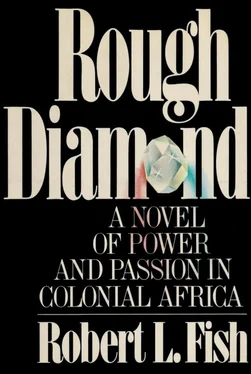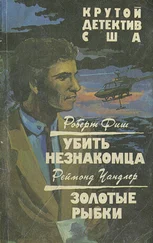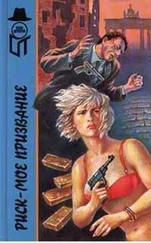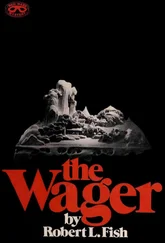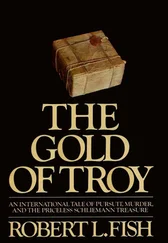“Andries tells me you later hired the man.”
“Yes, sir. Armando is now in charge of the production in the Kimberley Mines; they’re the largest of the four De Beers properties in Kimberley. Armando is a very fine person, and a lot more intelligent than people think. We’re very good friends. He’s become quite an expert on deep shafts and has been most valuable to us.”
“And the girl?” So the President had been interested in that. “Was she the Boer?”
“Yes, sir. We were married the day after the fight.”
“Broken hand and all?”
Barney grinned. “You don’t know my Fay, Mr. President. I would have married her with both arms and legs broken.” Barney’s grin disappeared as he remembered something. “If you’ll pardon me, sir, they tell me you once swam the Vaal at high flood when even the ferryman refused to cross, just to reach the girl you later married.”
Kruger nodded as if pleased to have the incident known and remembered by an Uitlander . “Yes, I was young and strong in those days. More important, like you, I was motivated.” He shook his head in sad memory. “Poor Maria! Her name was Maria du Plessis. She died a little over a year after we were married, in childbirth. The child died, too. It was a tragedy. She was so young! But God was good to me and I found another good woman quickly.” He rocked a few moments, staring at the floor of the stoep in silence, and then sighed and brought his head up. “I wanted to meet the man who had beaten the Angolan Giant. I have heard of you through Andries, of course, Mr. Barnato, as well as through your financial interests, and I have seen your picture often in the newspapers. I would have imagined you much larger to have won that fight. I doubt if I could have done so.”
“I know I couldn’t have swum the Vaal at high flood, Mr. President, or at any other time. Not even for my Fay.” Barney grinned. “I can’t swim.”
“Ah, but you see, I can fight.” Kruger stopped his rocking, leaning forward, looking at Barney steadily. “All right, Mr. Barnato. You now know why I wanted to see you. Why did you want to see me?”
Barney took a deep breath before he answered. It was a question he knew he would face and one he intended to answer honestly, but he still wanted to choose his words carefully.
“Mr. President,” he said slowly, “there are differences between the outsiders and the Boers, and those differences are leading toward trouble in which both sides will stand to lose a great deal. I had hoped to talk to you about some means by which this trouble could be abated, reduced, if not eliminated altogether.”
“Do you have any suggestions?” Kruger raised a hand; his tone became gently sardonic. “Other than those I have already heard — that we allow the Uitlander to vote me out of power, and with me the Volksraad, and then take over control of the Transvaal?”
“I am not so much interested in the franchise, Mr. President, as I am in a few of the objectives the people of Johannesburg have in mind when they ask for them. I agree with you that if the Uitlanders were the majority in the Transvaal at present, it would be foolish from your point of view to allow them the vote. It would mean the end of the Boer state. But, in the first place, I do not believe they are the majority—”
Kruger interrupted, his eyes shining, brightly and deceptively mild, as if he were enjoying the intellectual give-and-take of the discussion.
“Would you take that chance, Mr. Barnato, if you were in my shoes?”
“No, Mr. President. But you know as well as I do the length of time an outsider remains in the Transvaal under the conditions that would allow him to eventually become a citizen. Two years is a long time; three years is an eternity. Either he becomes settled and makes money, which a few do; or he fails to make money and he leaves — which is true of the vast majority — and he is replaced by Kaffir labor. Were you to agree, for instance, to reduce the fourteen years necessary for citizenship in the Republic to, say, seven years, you would have put a big hole in the arguments of the Reform Committee, without in any way threatening your control of the state. At least that is my honest belief.”
“And if you were wrong in your honest belief, Mr. Barnato? Who would lose the Transvaal in seven years? You or me?”
“You, of course, Mr. President. But I do not believe I am wrong, nor do I believe you believe I am wrong.”
“I see. Anything else, Mr. Barnato?”
“Yes, Mr. President. There’s the matter of taxes—”
“Ah!” Kruger leaned farther forward in his rocking chair, planting his slippered feet firmly on the floor to keep the chair from moving while he fixed Barney with eyes alight with understanding. He laid one thick finger against the side of his bulbous nose. “Now we come to it! You are a rich man, Mr. Barnato. Naturally you oppose taxes.”
“I oppose unreasonable taxes, Mr. President,” Barney said calmly, not at all intimidated by either Kruger’s mien or tone. “But I have never opposed any reasonable taxes that I know of, nor have I ever failed to pay them, whether I like them or not.” Barney smiled. “Nobody likes taxes, Mr. President, but that was not what I was going to say. I was about to say, Mr. President, that for the taxes that are paid — which I must argue are not slight — the citizens of Johannesburg receive very little to show for their considerable contribution. Take street lighting, for example. Kimberley has had lit streets for many years, yet we in Johannesburg lack this vital necessity. Take the matter of a proper sewage system, or the fact that while many of the Uitlanders are English, and most of the others are Americans, the schools — the few we have — are all taught in Afrikaans—”
Kruger held up a hand. “This is a Boer republic, Mr. Barnato.”
“But certainly if the English and the Americans wish their children to be taught in their own language—”
Kruger moved his upheld hand; Barney obediently stopped.
“Mr. Barnato, we were discussing before if the Uitlander or the Boer were in the majority in the Transvaal, yet the true majority is the Kaffir, as he is in the Cape Colony and in Kimberley. Do you teach your children in Bantu in Kimberley, Mr. Barnato, just because the majority of your population is either Zulu or Matabele? Of course you do not, and to expect you to would be ridiculous! Just as to expect us in the Transvaal to teach our schools in English. No. It is bad enough the Uitlander keeps coming in and keeps wanting to take control of our state. I certainly have no intention of helping him by having English taught in schools where Boers may also learn it!”
Barney sighed, sure that it was a point on which Kruger would not move. “Well, Mr. President, then there’s the matter of a railway—”
“Ah!” Kruger looked up once again; there was the look on his face of a cat about to pounce on a mouse. “Now we come to the railway! How many times have I heard it! A railway from Kimberley to Johannesburg to allow the Uitlander , if he isn’t the majority yet, to become the majority in a very short time! What then, Mr. Barnato? Tell me, will you give me a job in one of your many enterprises to support myself and my family when I am no longer President of the Transvaal? When the majority, all speaking English, votes me out of office, according to the other demands you are making? This majority brought here by your railway?”
“I am not making demands, only suggestions, Mr. President,” Barney said calmly. “I am suggesting that the franchise is not at the heart of the unrest of the Uitlander , and if concessions are made on some of the other points, there will never be a threat to your Presidency. I know the mind of the Johannesburger, Mr. President. Of course there are some hotheads, but the large majority do not want trouble. They want something for their taxes; they want to have their children speak their native tongue, as you do; they want a railway to hurry shipments of supplies from Kimberley and to get them home for visits to their families in the Cape without taking weeks to do so. Their requests are not remarkable in any way. With them, or some of them, I am sure this unrest would disappear in a hurry.”
Читать дальше
